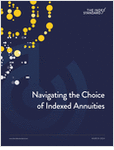Doubts about the longevity of the current bull market among institutional allocators and family offices are supporting a strong demand for alternative investment strategies, Context Capital Partners, an alternative investment specialist firm, reported Thursday.
Sixty-nine percent of these investors in a survey predicted that traditional equities and fixed income markets would underperform in 2018 compared with 2017, suggesting, Context said, that the cycle may be coming to an end.
In anticipation for a potential downturn, six in 10 investors reported they were reducing or hedging directional market exposure in equity or credit markets.
Seventy percent of respondents said they planned to increase their allocations to alternatives in 2018, and 29% planned to maintain their current allocations.
Context gathered responses from some 400 participants during its Context Summits Miami 2018, an annual gathering of fund managers and allocators for a series of one-on-one meetings.
“This survey was conducted immediately prior to a 10% drop in equities prices and a spike in market volatility, so it’s prescient that many institutional allocators were already planning significant allocations to alternative investment strategies, which offer investors the potential for downside protection as well as asymmetric returns that are uncorrelated to traditional market risks,” Ron Biscardi, Context’s co-founder and chief executive, said in a statement.
“We believe this strong demand for alternatives will continue as market participants adjust to the uncertainty ahead.”
Context noted that investors looking for strategies that offer the potential for a differentiated return stream are increasingly turning to cryptocurrencies and environmental, social and governance factors or impact-related strategies, two fast-growing sectors in the investment management industry.
However, the survey pointed up stark differences in attitude toward the two sectors among institutional allocators and family offices.









 March 29, 2018 at 02:31 PM
March 29, 2018 at 02:31 PM











